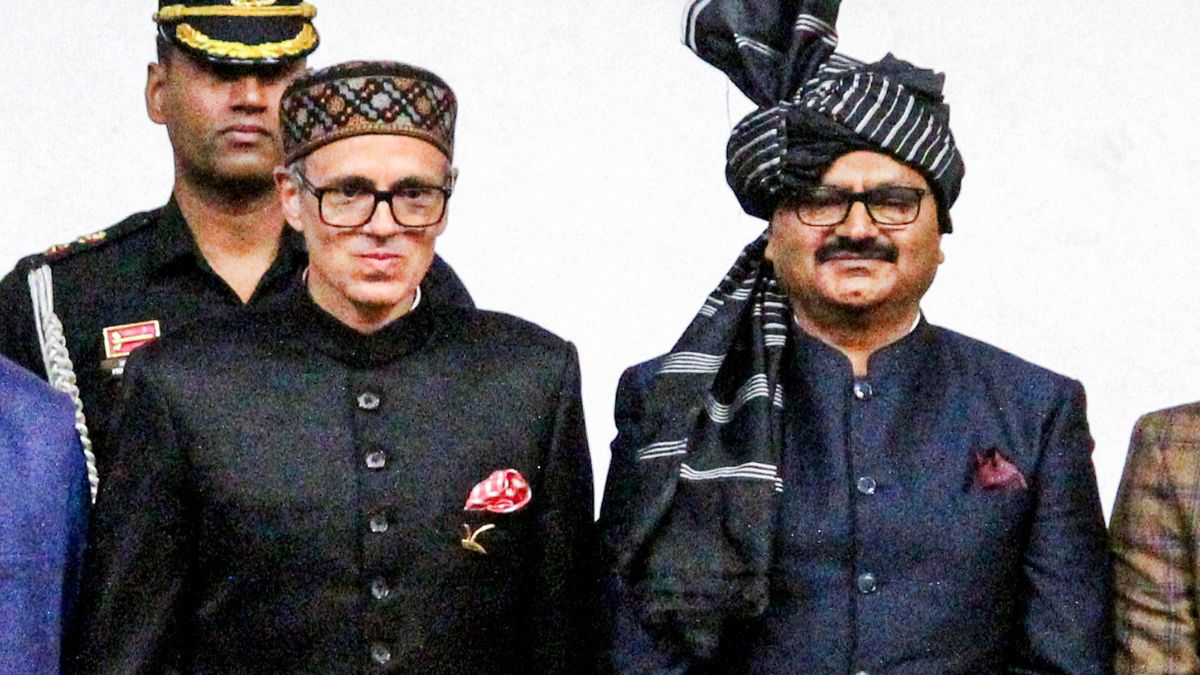Omar Abdullah’s return to power as the Chief Minister of Jammu and Kashmir marks a significant moment in the region’s political landscape. His appointment, along with the strategic inclusion of Surinder Singh Choudhary as Deputy Chief Minister, signals a new era of governance focused on inclusivity and regional representation. The formation of this government, the first elected one in six years, holds significant implications for the future of the Union Territory, particularly concerning its delicate balance of power between the Jammu and Kashmir regions. This analysis will explore the key aspects of this new government, focusing on the significance of Choudhary’s appointment and the potential challenges and opportunities that lie ahead.
The Symbolic Importance of Surinder Singh Choudhary’s Appointment
A Bridge Between Regions?
The appointment of Surinder Singh Choudhary as Deputy Chief Minister is arguably the most noteworthy aspect of Omar Abdullah’s cabinet. Choudhary, a National Conference MLA from the predominantly Hindu region of Jammu, represents a deliberate attempt to bridge the perceived divide between Jammu and Kashmir. His victory over BJP state chief Ravinder Raina, a significant political figure, further underscores the symbolic weight of his appointment. This choice demonstrates Abdullah’s commitment to inclusivity and addressing concerns about regional disparity, a crucial element for ensuring stability and cooperation across the UT. The fact that he is one of only a few representatives from Jammu in the cabinet highlights the significance given to this gesture of reconciliation and balance.
Addressing Past Divisions
The history of animosity between Choudhary and Raina, culminating in past physical altercations, adds another layer of significance to Choudhary’s current role. Overcoming this historical antagonism signifies a potential shift in the political dynamics of the region, fostering a more collaborative environment. Choudhary’s elevation also carries the weight of expectation; he must now effectively represent the concerns of Jammu and act as a crucial liaison between the two distinct regions, preventing past political divides from influencing policy decisions. This delicate balance will require skillful navigation and genuine commitment from all parties involved. The success of this endeavor will likely depend on his ability to build trust and foster meaningful dialogue.
Navigating the Complexities of Coalition Governance
Balancing Regional Interests
The new government faces the considerable challenge of balancing the interests of both Jammu and Kashmir. Historically, the two regions have had distinct identities, priorities and political leanings, which have sometimes led to tensions and divisions. Omar Abdullah’s cabinet demonstrates a calculated effort to address these imbalances, although the success of this strategy remains to be seen. His promise that Jammu will not be sidelined is a crucial commitment; fulfilling this promise will require careful policy-making, equitable distribution of resources, and active engagement with representatives from both regions.
Managing Internal Dynamics
Successfully governing within a coalition context requires skillful management of internal dynamics. Maintaining a cohesive and unified front, while accommodating potentially differing political perspectives and regional priorities, will necessitate strong leadership and compromise from all members of the cabinet. The three additional ministerial vacancies yet to be filled further highlight the ongoing political balancing act that must be conducted to solidify the coalition’s internal stability. Effective communication and shared decision-making processes will be crucial for minimizing potential conflicts and ensuring policy coherence.
The Challenges Ahead and Opportunities for Growth
Economic Development and Employment
One of the most pressing challenges facing the new government is economic development and job creation. High unemployment rates, especially among the youth, pose a significant social and political risk. This government must develop comprehensive economic policies focused on stimulating growth in various sectors, creating opportunities, and investing in infrastructure, particularly in those areas that are underdeveloped. Implementing such policies will require close collaboration between the government and the private sector to foster private investment, as well as the efficient use of public funds.
Infrastructure Development & Social Welfare
Equitable infrastructure development is equally vital. Investment in infrastructure across the UT, focusing on both regions equally, is not only essential for promoting economic growth, but it will also demonstrate the government’s commitment to fair representation. A priority needs to be improving public transport, which includes both roads and railways to link all areas and enhance mobility, allowing easier access to education, healthcare, and employment opportunities. Ensuring access to social welfare programs is also imperative, guaranteeing assistance to vulnerable populations such as the elderly, people with disabilities, and those below the poverty line.
Takeaway Points:
- Omar Abdullah’s return to power signifies a crucial moment in Jammu and Kashmir’s political trajectory.
- Surinder Singh Choudhary’s appointment as Deputy Chief Minister is a symbolic move towards greater regional representation and a bridge between Jammu and Kashmir.
- The success of this government will hinge on its ability to balance regional interests, manage internal coalition dynamics, and tackle significant challenges like economic development and equitable infrastructure development.
- Addressing past political divisions and fostering a collaborative political climate will be vital for the stability and growth of the region.
- The success or failure of this government will be a major test of political stability and governance.




